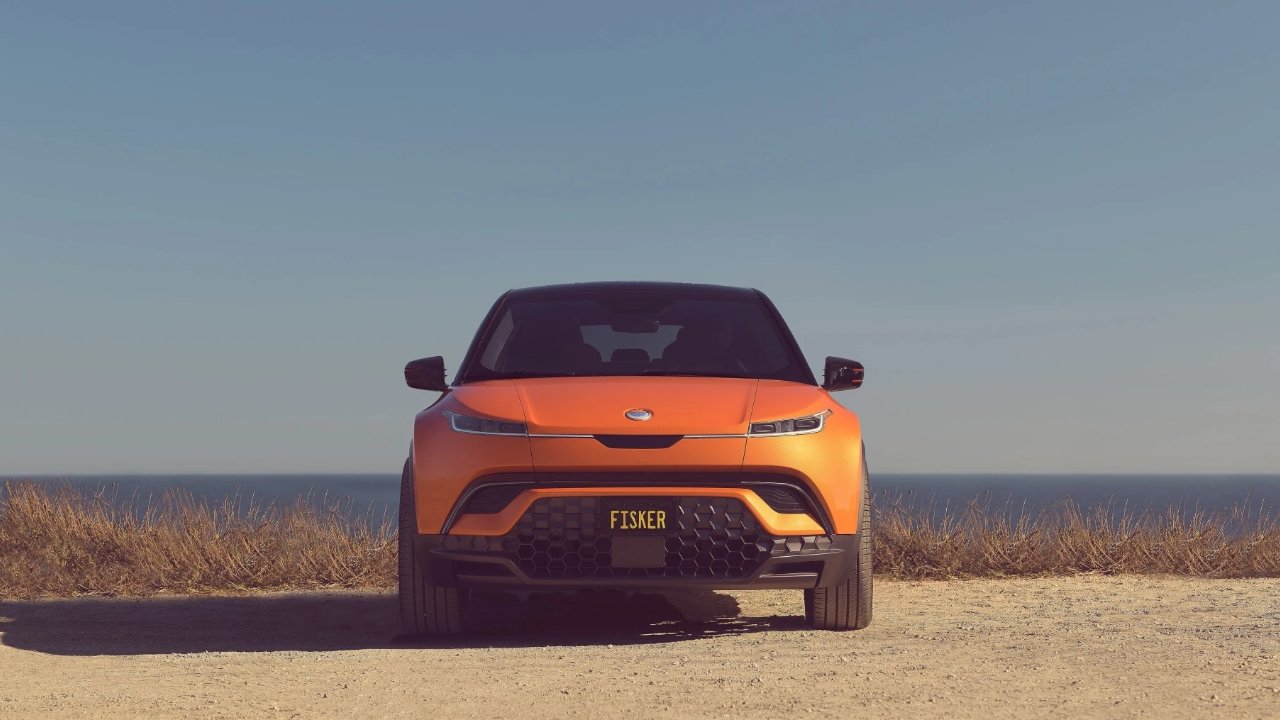Foxconn will build electric vehicle manufacturing plants in US, Thailand
Starting in 2022, Apple's biggest iPhone assembler Foxconn will begin building electric vehicle plants to help offset the slowing smartphone industry.

EV company Fisker is one of Foxconn's early partners for EV manufacturing
The Taiwanese company seeks to build factories in the United States, Thailand, and possibly in Europe too. Foxconn expects to supply components for EV startups and accelerate production.
"Our plans are to begin mass production in the U.S. and Thailand respectively in 2023," Foxconn Chairman Young Liu told investors in an earnings call. "Other than in the U.S. and Thailand, we are also in talks with possible locations in Europe too as part of our global EV footprint strategy."
According to Nikkei Asia, Foxconn is in negotiations with three states in the U.S. to build EV plants, and one of those states is Wisconsin. The state was previously targeted for a chip fabrication plant, but could shift to electric vehicles as part of the new strategy.
In Thailand, Foxconn has partnered with Thai oil and gas conglomerate PTT to develop a platform for EV and component production. The U.S. plant will serve clients such as Fisker by the end of 2023.
With the "iPhone 13" production starting later in August, Foxconn remains the biggest iPhone assembler. The company's move into electric vehicles means it could be a strategic partner for manufacturing and assembling Apple Car.
Read on AppleInsider

EV company Fisker is one of Foxconn's early partners for EV manufacturing
The Taiwanese company seeks to build factories in the United States, Thailand, and possibly in Europe too. Foxconn expects to supply components for EV startups and accelerate production.
"Our plans are to begin mass production in the U.S. and Thailand respectively in 2023," Foxconn Chairman Young Liu told investors in an earnings call. "Other than in the U.S. and Thailand, we are also in talks with possible locations in Europe too as part of our global EV footprint strategy."
According to Nikkei Asia, Foxconn is in negotiations with three states in the U.S. to build EV plants, and one of those states is Wisconsin. The state was previously targeted for a chip fabrication plant, but could shift to electric vehicles as part of the new strategy.
In Thailand, Foxconn has partnered with Thai oil and gas conglomerate PTT to develop a platform for EV and component production. The U.S. plant will serve clients such as Fisker by the end of 2023.
With the "iPhone 13" production starting later in August, Foxconn remains the biggest iPhone assembler. The company's move into electric vehicles means it could be a strategic partner for manufacturing and assembling Apple Car.
Read on AppleInsider

Comments
Unfortnately, like Lemmings, they follow all a few pseudo-green apostles, who decided without doing the math, or considering anything other than CO2, that Li-Ion battery based electric mobility is “the future”.
Synthetic fuels have a huge environmental footprint themselves, and may not be practical with droughts and and heat waves impacting feed stock and land competition for food use.
Many companies are working on alternate battery technologies*, eliminating the use of Cobalt, improved methods of extracting Lithium (from existing brines and clay deposits) in the medium term. *Many look good on paper or in small scale production, but haven't been developed to where they can be mass produced economically.
Sometimes you need to work with the world you have while working for a better future. Or to put it another way: if wishes were fishes, Jesus would have been a lot less famous.
Gotta walk before you can run.
Car manufacturing is a lit different than assembling iPhones or laptops or the stuff Foxconn does now. Hopefully they are able to adjust to be able to compete with those whose expertise IS car manufacturing. There is a reason that companies like Magna exist and are not making iPhones. They've honed their skills and know what they are doing with vehicle manufacturing.
BEV are an intermediate step on the way to better technology for EV cars. The real problem is generating the electricity needed to charge them in a responsible way. Unfortunately the wackos rule is the West and most western countries won't do new nuclear plants. Places like China are gaining the lead with their forward approach to nuclear power. France is an exception in the West. Today's nuclear technology is not the technology that lead to problems (however minor compared to the pollution spewing conventional plants).
Although I have been generally pessimistic with regards to the notional Apple Car as everything we have seen has been talk and hot air so far, this is a most significant move as it indicates intent to manufacture. I say this because it is unlikely that Foxconn would embark on such an expensive and risky endeavor without Apple’s prodding and financial backing.
I am inclined to think that Foxconn will be responsible for the electronic components of the vehicle and not the overall manufacture and integration of the vehicle itself, since they have little experience in the automotive universe.